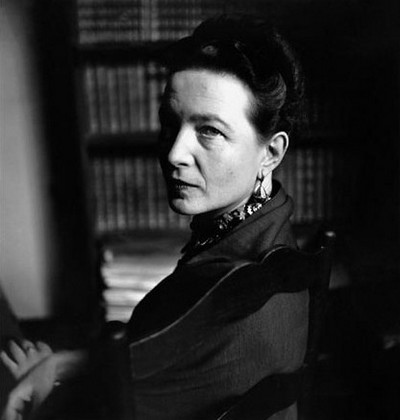“Youth and what the Italians so prettily call stamina. The vigor, the fire, that enables you to love and create. When you’ve lost that, you’ve lost everything.”
― Simone de Beauvoir, The Woman Destroyed
The Woman Destroyed is Simone de Beauvoir’s beguiling fictional analysis of womanhood’s complexities. The work is a collection of three novellas, each featuring a different woman in crisis and trapped by circumstance. “The Age of Discretion” recounts the desperation of a successful professor and writer who feels her power and influence over her newly-married son slipping. “The Monologue” centers around an aging, rich woman sits at home, alone, and pours out her bitterness in a stream of consciousness diatribe. In the title story, an older heroine struggles to rediscover happiness after her husband confesses to an affair. The three stories, each captivating in its beautifully profound exploration of the woman’s mind, center around individuals battling the unstoppable passage of time, the inevitably of age, resounding loneliness, the indifference of loved ones, and the unfortunate decay of passion.
De Beauvoir sincerely and authentically captures what life is like for middle-aged women in an emotionally resonant work. The stylistic diversity of the three stories successfully reflects the complexities of a woman’s mind and de Beauvoir’s unapologetic portrayal of women ‘past their prime’, replete with their doubts and failures. Each woman is a refreshing alternative to the feminist powerhouse in high demand by those looking for female protagonists, reflecting patterns of life, insecurities, and similarities with any number of women the most unsuspecting reader may know. The unraveling of these women’s lives is accessible and human, a humanity that is deeply intimate and painful. De Beauvoir manages this masterful piece of prose illuminating the inner workings of the middle aged woman’s mind in a way only a pioneer of existentialism could.
A Frenchwoman who lived through almost all of the 20th century, de Beauvoir was a writer of novels, essays, and biographies, an intellectual, social theorist, and political activist. Most famously known for The Second Sex, she laid the tract for contemporary feminism. It is impossible to understand de Beauvoir without mentioning her almost lifelong open relationship with Jean-Paul Sartre. The couple never got married, understandably rejecting the institutional constraints and purposeless of marriage. The existentialist undertones of de Beauvoir’s philosophy and lifestyle are carried over beautifully to the emotional devastation of the three women in The Women Destroyed.
In each story, the purpose and meaning of marriage, relationships, love, and life are drawn into question as their chloroformed contentment painfully unravels. Each woman and each reader participating in her journey struggles with the question:
“On whom does the blame fall?”
De Beauvoir transforms the mundanity of middle aged life into this complex web of human relationships, of the desperately willful ignorance of changing circumstances and the inevitable, yet shared, pain of human existence. The consolation she provides comes in the quiet reminder that we all share this pain and the human condition, regardless of how painful, is common to us all.






